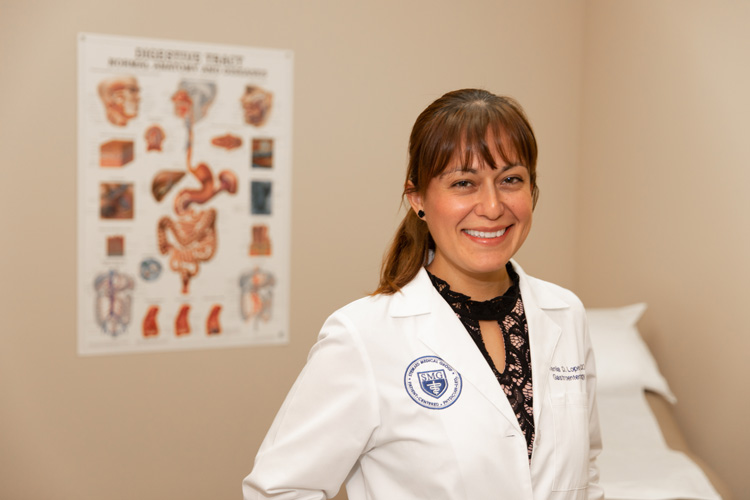Inflammatory bowel disease (IBD) is, according to the Mayo Clinic, “an umbrella term” used to describe multiple disorders of the digestive tract.
Newly arrived Sebastian River Medical Center gastroenterologist Dr. Tania Lopez says ulcerative colitis and Crohn’s Disease are the two most common conditions under that umbrella, adding that, while their symptoms can be quite similar, their treatments are not.
“That’s why it’s important to go see your gastroenterologist,” Lopez explains, “or your family doctor who can refer you to one.”
An accurate diagnosis, she adds, “requires blood work, endoscopic evaluation, usually with a colonoscopy, and imaging with a CT or MRI.”
And while no one looks forward to a colonoscopy – a procedure in which a flexible video camera is inserted through the anus to provide a visual inspection of the rectum and large intestine – Lopez says these procedures are necessary in the face IBD.
If left undiagnosed and untreated, ulcerative colitis can cause long-lasting inflammation and ulcers in the innermost lining of the large intestine and rectum while Crohn’s Disease attacks the lining of the digestive tract and often spreads deep into the affected tissues.
There is no one-size-fits-all treatment for these very different diseases, which are not likely to be fatal, but which can and do make life miserable for many of those afflicted.
“There are a lot of patients,” Lopez says, “who just stay in their house because they’re afraid to go out because they’re just going to have uncontrolled diarrhea. Accidents. Bloody diarrhea. They can have more than 10 or 20 diarrhea bowel movements a day and they complain of having to change their underwear and their clothes routinely.”
According to the Centers for Disease Control, “the exact cause of IBD is unknown,” but it is known that it results from “a defective immune system.”
A properly functioning immune system attacks foreign organisms such as viruses and bacteria to protect the body, but in IBD, the immune system responds incorrectly, causing inflammation of the gastrointestinal tract.
The good news? The CDC goes on to say “several types of medications may be used to treat IBD: aminosalicylates, corticosteroids (such as prednisone), immuno-modulators, and the newest class approved for IBD – the ‘biologics.’”
In addition, certain vaccinations also are recommended for patients with IBD to help prevent infections.
“There are a lot of new medications on the rise,” Lopez says. “There are some older ones too.”
She cites “the immuno-modulators, which are oral medications such as azathioprine and mercaptopurine. And then there are the biologic ones that are either injectable or oral. Those kind of regulate the immune system, trigger down or lower that immune system response to help with all that inflammation that’s going on.”
Lopez notes that “the biologics can be expensive.”
She’s not kidding. The cost can be as high as $20,000 to $48,000 a year for some of the newest biologics, but for the most part Medicare does cover the drugs.
That won’t help everyone with these conditions, however, since IBD “tends to affect a younger population,” according to Lopez.
It’s here where Lopez pointedly interjects that “IBD should not be confused with irritable bowel syndrome or IBS. Although people with IBS may experience some similar symptoms to IBD, IBD and IBS are very different. Irritable bowel syndrome is not caused by inflammation and the tissues of the bowel are not damaged the way they are in IBD.”
That damage from various forms of IBD can be so severe that surgery becomes the patient’s only option. And, in fact, that’s all too common.
The U.S. National Library of Medicine says “surgery may be needed for approximately 20 percent of patients with ulcerative colitis … [while] up to 80 percent of Crohn’s disease patients will undergo an operation during their lifetime.”
That’s why Lopez insists “the earlier [these diseases] are treated, the better the chance of controlling them. That’s why people who have these symptoms should definitely seek out help right away.”
Borrowing a slogan from the Crohn’s and Colitis Foundation, Lopez concludes by saying: “Don’t let your IBD control you. Take control of your IBD.”
Dr. Tania Lopez is with Steward Health Care’s Sebastian River Medical Center’s Gastroenterology team. Her offices are at 8005 83rd Ave., Suite One in Sebastian and 3745 11th Circle, Suite 101 in Vero Beach. The phone number is 772-589-0580.

